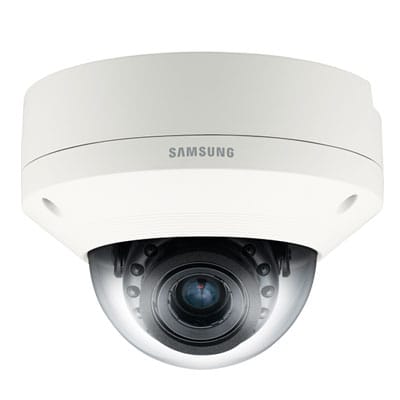
IP surveillance camera systems are here to stay. You know it. We know it. Criminals know it. The Police know it. As we mentioned in our last post, the surveillance video can be supremely valuable to the police— or it can be totally worthless. To summon more of the former, and less of the latter, police department after police department has taken to giving advice and offering assistance to citizens wishing to install cameras. They all cite the same three factors that can make or break a video’s forensic value.
- line of sight
- lighting
- maintenance
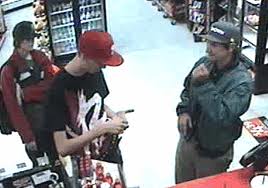
Line of sight
How many times have we watched the evening news and heard the anchorman plead, “If you’ve seen this person, please call the police.”
The problem is all we see is a Yankees cap or a hood because the camera is looking down on the suspect.
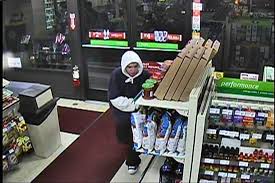
High-mounted or wide-angle cameras are a must in any bank, convenience store, or lobby since they allow for surveying the scene and observing a crime as it takes place, but when it comes to getting a quality shot of a suspect’s face, one that can stand up in court, they just don’t fit the bill.
This is why it’s important to have multi-camera IP camera systems, with every camera having its own place and its own purpose. But if only one camera is to be used it should be in a prime location where it can capture a close-up facial shot capable of recording recognizable features.
As a rule of thumb, mounting a camera at a 10 to 15-degree angle gives the best line of sight for facial identification. In a convenience store or bank this could be right behind the cash register or teller, or at the door to catch a fleeing shoplifter. An added value of a low mounted camera is that it can deter crime just by its obviousness.
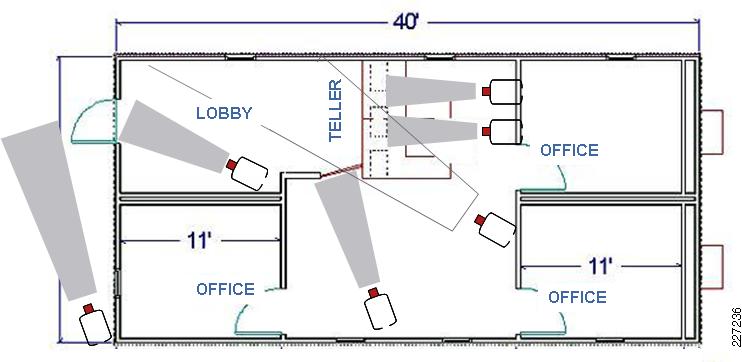
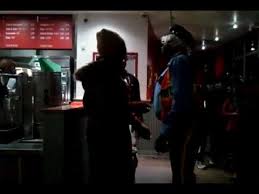
Lighting
Quite often surveillance video will be too dark to be of much use. Sometimes it’s because the camera was installed during the day when the business was open and well-lit, without giving much thought to the fact that burglaries and break-ins most often take place at night.
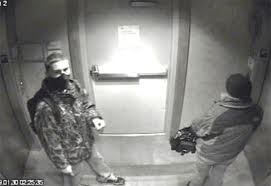
Bright lighting should be employed at all times. Better yet, if the business can afford it, the best step to take is to install low light performance cameras that perform well in dark situations.
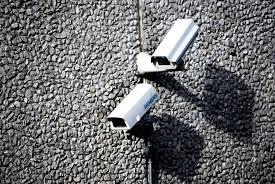
When using outdoor cameras, one should always consider the various light changes that occur in the course of a day. Direct sunlight will “blind” the camera and reduce image sensor performance. The best position for mounting a camera, if possible, is with the sun shining from behind a slightly downward-angled camera.
Back-lighting can also an issue. Problems occur when the object of focus is in front of a window or brightly lit door. The camera will focus on the well-lit background while whatever is going on in front of the door or window will be dark and hard to identify. In the case of a window, curtains, plants, or posters will help, as will the most obvious, re-positioning the camera. Adding a camera with wide dynamic range to the system is the best solution if one can afford to spend a little more.
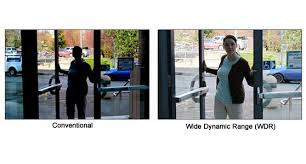
Maintenance
Obviously maintenance involves making sure each and every camera is functioning at its best. This involves not only cleaning them but keeping them up to date with all the current software updates.
In the case of outdoor cameras, care should be taken that surrounding trees and bushes haven’t grown to the extent that they are blocking the camera. Indoor camera sites should be checked to make sure all lights are functioning and that the addition of any new equipment isn’t blocking the light. Any changes since the camera was installed, such as a new paint color or the addition of floor tiles, can also make a room darker and require extra lighting.
If all this sounds familiar, it’s because these are the same three points Kintronics, has been hammering home in our newsletters and blogs for years and years. If you have questions about setting up your IP camera or anything IP give us a call and speak to one of our sales engineers. 914-944-3425 or, if you prefer, fill out an information request form.